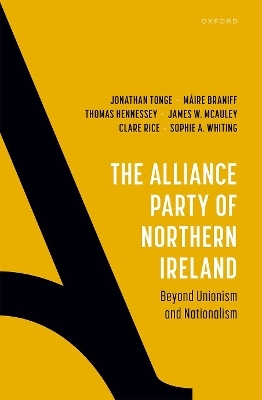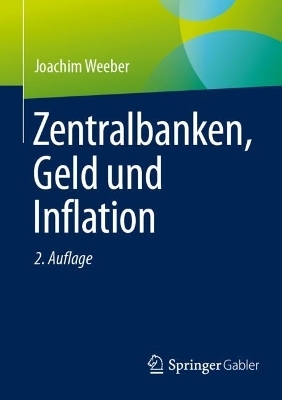
The Alliance Party of Northern Ireland
Oxford University Press (Verlag)
978-0-19-288958-4 (ISBN)
Northern Ireland's political system is dominated by an Irish Catholic nationalist versus British Protestant unionist faultline, based upon the long-running argument over whether the region should remain part of the United Kingdom or form part of a United Ireland. Yet the largest category of elector in Northern Ireland says they are neither a unionist nor a nationalist and the third most popular political party is now Alliance, which is not aligned to either of the two traditional constitutional positions.
Drawing upon a unique in-depth survey of its members, this volume analyses the history and contemporary rise of Alliance and the surge of a centrist party in Northern Irish politics which is challenging the old order. How has a party which eschews ethnic bloc politics, has no constitutional preference, and contains a mix of Catholics, Protestants, and many of no religion come to prominence in a polity whose political institutions are framed upon an old binary divide?
The Alliance Party of Northern Ireland undertakes an extensive membership survey analysing the role of a non-ethnic party in an ethnic system, assessing Alliance identities, politics, and futures. Can Alliance integrate Northern Irish society through shared education and housing or will continuing polarisation thwart the Party's project? Would Alliance take a position in the event of a constitutional referendum on Northern Ireland's future - and what might that stand be? These and other key questions form part of a novel study of the party of Northern Ireland's often overlooked centre ground. The volume is essential reading for those wanting to understand how non-ethnic parties can survive and even thrive within an ethnic party system.
Jonathan Tonge is Professor of Politics at the University of Liverpool and author of numerous books and articles on the politics and parties of Northern Ireland, British politics, peace processes, and the politics of the voting age. He was Principal Investigator of the 2010, 2015, 2017, and 2019 Economic and Social Research Council Northern Ireland General Election studies. Professor Tonge was also Principal Investigator on an award-winning Leverhulme Trust funded book on the Democratic Unionist Party. He is a regular media broadcaster. Máire Braniff is a Senior Lecturer in Politics at Ulster University. From 2016-2018 she served as Director of INCORE (International Conflict Research Institute at Ulster University). Máire's research expertise lies at the nexus of peace, justice, and truth recovery. She has published on memory, gender, and identity politics and is a member of the Board of Northern Ireland Community Relations Council, Training for Women's Network, and Academic Friend of European Peacebuilding Liaison Office. Thomas Hennessey is Professor of Modern British and Irish History at Canterbury Christ Church University. He previously held research posts at Queen's University Belfast and Ulster University. He is the author of numerous books and articles on the history of Northern Ireland. James W. McAuley is Emeritus Professor of Political Sociology and Irish Studies at the University of Huddersfield, UK, and a Visiting Professor at Leeds Beckett University. He has researched and written extensively on politics and society in Northern Ireland, most recently on unionism and the use of collective memory. His latest book is Collective Memory and the Conflict in Northern Ireland (Palgrave Macmillan 2024). Clare Rice researches and teaches across the disciplines of Law and Politics. Her doctoral thesis, completed at Queen's University Belfast, examined intersectional inequalities and power-sharing within the EU, research for which she was awarded the 2021 Elizabeth Wiskemann Prize by the Political Studies Association for best thesis in the '(In)equality and Social Justice' category. She has held postdoctoral positions at Newcastle University Law School and at the University of Liverpool. Sophie A. Whiting is a Senior Lecturer at the Department of Politics, Languages and International Studies, University of Bath. Her research centres on political parties and power sharing institutions following violent conflict and the influence of 'spoiler' groups within peace processes. Sophie's publication record includes monographs with Oxford University Press and Manchester University Press and articles with Terrorism and Political Violence, The British Journal of Politics and International Relations and the European Journal of International Studies.
List of Figures
List of Tables
List of Abbreviations
Authors
Introduction
1: Founders, principles, and early years
2: Alliance and the Anglo-Irish Agreement
3: Peace and the Good Friday Agreement
4: From precarity to progress: Beyond the Good Friday Agreement
5: Centrism: Marginalization, opportunities, ideology, and roles
6: The constitutional question
7: Who are the members?
8: Elections and voters
9: Identities
10: Religion, education, and social issues
11: Diversity and representation
12: Reforming politics
Conclusion
Appendix: Membership survey data tables
List of Focus Groups
List of Interviewees
References
Index
| Erscheinungsdatum | 17.09.2024 |
|---|---|
| Verlagsort | Oxford |
| Sprache | englisch |
| Maße | 162 x 240 mm |
| Gewicht | 596 g |
| Themenwelt | Sozialwissenschaften ► Politik / Verwaltung ► Staat / Verwaltung |
| Sozialwissenschaften ► Politik / Verwaltung ► Vergleichende Politikwissenschaften | |
| ISBN-10 | 0-19-288958-3 / 0192889583 |
| ISBN-13 | 978-0-19-288958-4 / 9780192889584 |
| Zustand | Neuware |
| Haben Sie eine Frage zum Produkt? |
aus dem Bereich


